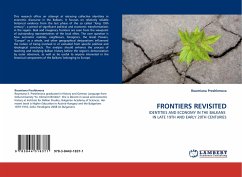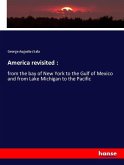This research offers an attempt at retracing collective identities in economic discourse in the Balkans. It focuses on relatively reliable historical evidence from the last phase of the so called long 19th century , a period of significant political and economic transformations in the region. Real and imaginary frontiers are seen from the viewpoint of outstanding representatives of the local elites. The core question is how economic realities, neighbours, foreigners, the Great Powers, Europe as a whole, and other geographical designations influenced the notion of being involved in or excluded from specific political and ideological constructs. The analysis should enhance the process of teaching and studying Balkan history before the region's demonization by outer observers, as well as be useful to anyone interested in the historical components of the Balkans' belonging to Europe.
Bitte wählen Sie Ihr Anliegen aus.
Rechnungen
Retourenschein anfordern
Bestellstatus
Storno








